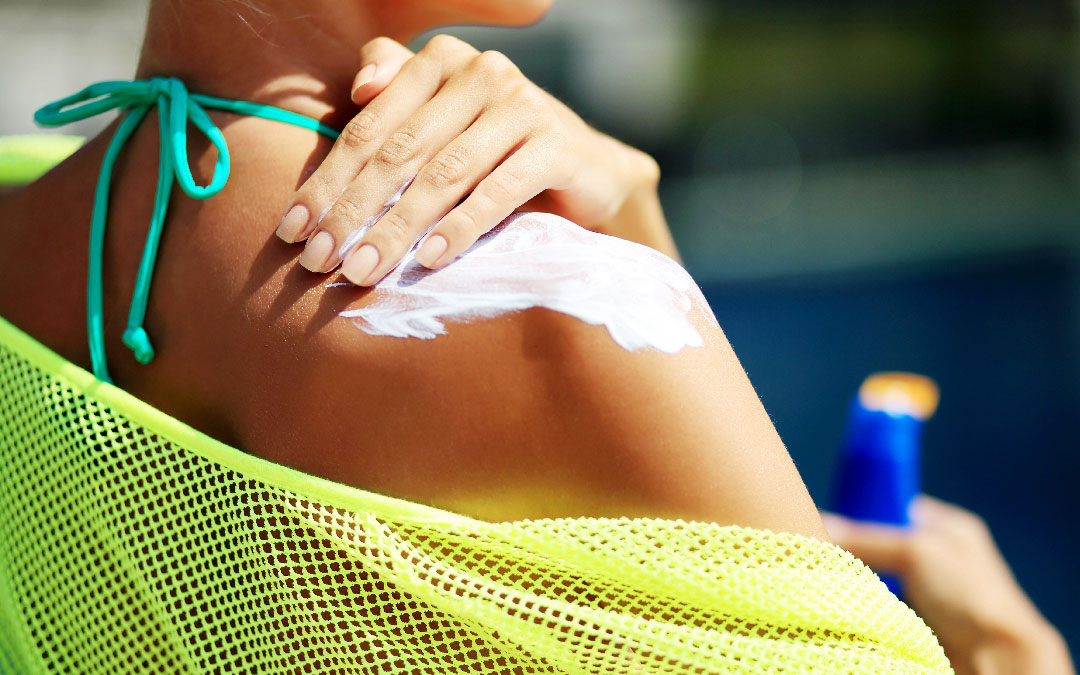It feels like forever since the sun has graced us with its warm rays but while it may be tempting to soak up the extra vitamin D, don’t risk your health by going outside unprotected.
Tans Are Not Healthy
A tan is a sign that your skin has been injured. Whether it is from the sun’s rays or a tanning bed, every time you tan – your skin is damaged. May is Skin Cancer Awareness Month, and it’s imperative to realize just how damaging the sun can be on our skin.
Skin Cancer Facts
According to the American Academy of Dermatology (ADD), one in five Americans will develop skin cancer sometime in their life. There are several types of skin cancer, including Actinic Keratoses, basal cell carcinoma, squamous cell carcinoma and melanoma – the deadliest form. Nearly 20 Americans die from melanoma every day. Skin cancer can affect anyone, regardless of skin color and the best way to combat it is to prevent it.
Ways to Prevent Skin Cancer
- Seek shade when appropriate. The sun’s rays are strongest between 10 a.m. and 2 p.m. If your shadow is shorter than you are, seek shade.
- Wear protective clothing. A lightweight long-sleeved shirt, pants, a wide-brimmed hat and sunglasses go a long way to protecting your skin.
- Generously apply sunscreen. Apply awater-resistant sunscreen with an SPF of 30 or higher. Broad-spectrum sunscreen provides protection from both UVA and UVB rays. Use sunscreen whenever you are going to be outside, even on cloudy days. Apply enough sunscreen to cover all exposed skin. Most adults need about 1 ounce — or enough to fill a shot glass — to fully cover their body. Don’t forget to apply to the tops of your feet, your neck, your ears and the top of your head.
- Reapply sunscreen often. Applying sunscreen isn’t a once-and-done process. It needs to be reapplied every two hours or after swimming or sweating.
- Use caution near reflective surfaces. Water, snow and sand act like a mirror for the sun’s rays to bounce off of, back onto your skin, increasing your chance of sunburn.
- Avoid tanning beds at all costs. Anything that uses UV radiation is not safe. Ultraviolet light from tanning beds not only can cause skin cancer, but they also prematurely age the skin.
- Use a self-tanner. If you still want that summer glow, consider using a self-tanning product but continue to use sunscreen on top it.
- Perform regular skin self-exams. Detect skin cancer early, when it’s most treatable, and see a board-certified dermatologist if you notice new or suspicious spots on your skin, or anything changing, itching or bleeding.
Taking steps to safely enjoy the sun this summer can help keep you healthy and cancer-free. If you do notice any suspicious spots, contact us today to make an appointment with one of our doctors.

